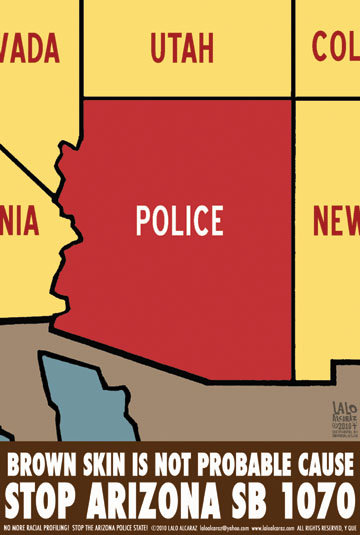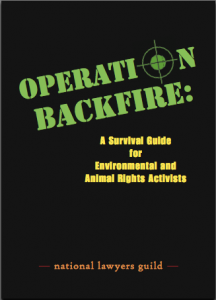By Evan Wyloge - evan.wyloge@azcapitoltimes.com
Published: April 27, 2010 at 7:24 pm
Arizona Capitol Times
One week after Gov. Jan Brewer gave Arizona the toughest immigration law in the U.S., state lawmakers added changes that would limit the scope of the law and protect local governments from lawsuits.
The changes were sought by lawmakers who voted for Arizona’s new immigration law after striking a deal with immigration hawk Sen. Russell Pearce.
Rep. Russ Jones, who was one of three Republican lawmakers to vote against a similar bill in 2009, said he agreed to vote for S1070 this year in exchange for Pearce’s promise to make changes to it in follow-up legislation.
The resulting bill, H2162, was approved on April 29, just hours before the end of the session.
H2162 prescribes a few key changes to the new immigration law, clarifying both the definition of lawful contact and guidelines for municipalities, as well as lowering the minimum — not the maximum — fine that can be assessed to cities that have so-called “sanctuary city” policies. It also restructured some of the punitive actions that a court would apply to those charged under the new law.
Representatives of the law enforcement community say the changes significantly alter the way police would have to enforce the law and the way they would be accountable for doing so.
Lyle Mann, who runs the day-to-day operations of the Arizona Peace Officers Safety and Training Board (AZPOST), said the fine points of the trailer bill are vital to the street-level execution of the new law. His group, incidentally, has been tasked by the governor with turning the provisions of the new law into a specific and manageable training rubric for police agencies across the state.
One of the changes to S1070 removes the word “solely” from the description of the new law’s lawful contact, when it comes to race. So, now race, color or ethnicity simply cannot be used as part of
Mann said this is a huge simplification for his organization’s task, and should settle at least some of the fear over racial profiling. Now, his organization will simply be able to tell police agencies to have their officers understand that race is not a reason to initiate contact.
“It should quell the fears that a lot of people have vocalized,” Mann said. “This will make the training and policymaking much clearer and simpler.”
H2162 also narrows what is banned at the county, city and municipality level, changing it from a “policy or practice” to just a “policy” preventing police officers from using the new immigration law to its fullest extent.
With the independence that police officers rely on, Mann said, management of their activities is nearly impossible. So their “practices” are made at the officers’ discretion. The officers are trained, though, to rely on the “policies” their agency set.
“A ‘policy’ is the written instruction that tells officers how a task is to get done. ‘Practice’ is the actual activity carried out in support of that policy,” Mann said. “So the city of Phoenix might have 3,000 officers on the street. It’s much more difficult to control how those officers carry out their practices.”
Removing the words “or practices” from the new law goes a long way in protecting police agencies from lawsuits and fines, Mann said, because AZPOST will give guidelines, cities will turn those guidelines into “policy,” and the cities then would not be at the mercy of litigation coming from any resident who feels like the police agency isn’t enforcing the law to the fullest extent.
In addition, Jones said Pearce agreed to lower the fines assessed to local governments that violate the law. In S1070, a local government or agency initially could have been fined between $1,000 and $5,000 per day if an Arizona resident filed suit against them in Superior Court.
Jones wanted the fines cut in half, because he thought those numbers were arbitrary. Pearce only met him part of the way.
Instead of lowering both the maximum and minimum per-day fines, Pearce kept the $5,000 maximum and changed language in H2162 that would lower the minimum fines to $500 per day from $1,000 per day.
“Pearce says he thinks it’s important to have a sanction,” Mann said. “So you have to say, ‘OK, what’s a reasonable sanction? Do you get a better outcome with a bigger sanction?’ And you have to remember, if the city of Phoenix gets fined $1 million, they can’t open parks, they can’t operate their libraries, they take that money from schools. (Jones) is saying you can get the same compliance with half those numbers.”
Nancy Jo Merritt, who has 32 years of experience as an immigration attorney, said she understands why Jones and the law enforcement agencies would be so concerned over these small changes.
“This law is going to be so hard to comply with, so why make the punishments so harsh?” she said. “It’s like the assumption is the only way to get cities to follow this law is by threatening them with the death sentence.”
The last change outlined in H2162 concerned a phrase that said lawful contact can include an officer’s use of the new immigration law “in the enforcement of any other law or ordinance of a county, city or town or this state.”
Rep. Kyrsten Sinema, a Democrat from Phoenix, harped on this new phrase, saying it will mean that law officers will be able and compelled to check the status of a person, even if the police officer were responding to some sort of civil town ordinance, like an overgrown lawn, a fence in disrepair or a barking dog.
Sinema said police officers could previously only use the new immigration law when they encountered someone during the enforcement of a criminal or civil traffic violation, and that this will expand the way police officers could contact, then detain people while checking their federal immigration status.
Pearce denied that this change means much, and said police would already have been able to use the new law when making contact with a person for such civil ordinances. He said this new language was only added to further clarify the way police are authorized to use the new immigration law.
Mann of AZPOST agreed with Pearce, saying police officers would have the ability to use the new immigration law during any type of contact with any person, regardless of this new language.
“Police officers do this every day. It’s called a ‘Terry Stop,’ after the
Pearce said the changes in H2162 were something he agreed to, in order to get the votes he needed, and that he thinks he lived up to his bargain.
“I wasn’t excited about it, but we did it,” Pearce said. “(Jones) ought to be happy with the changes, I kept my word.”
























No comments:
Post a Comment